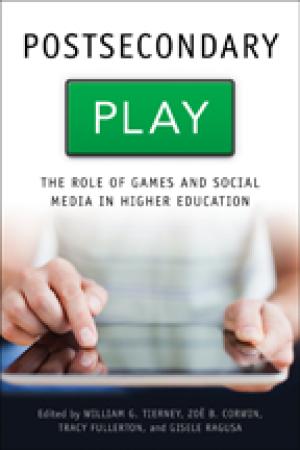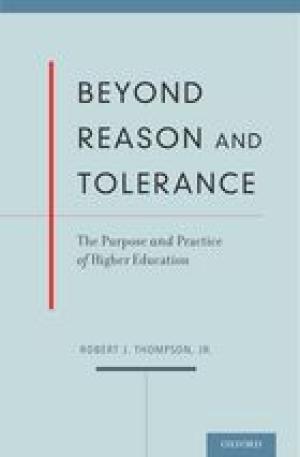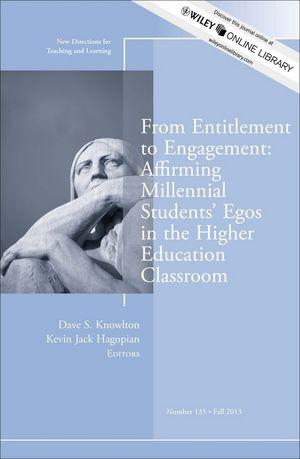Resources

The college application process—which entails multiple forms, essays, test scores, and deadlines—can be intimidating. For students without substantial school and family support, the complexity of this process can become a barrier to access. William G. Tierney and his team at the University of Southern California approach this challenge innovatively. Using the tools of online games and social media, they have developed ways to make applying for college much less intimidating. While the vast majority of college students use social media and gaming in their everyday lives, colleges and universities have been slow to recognize and harness the power of either. Postsecondary Play explores the significance of games and social media in higher education, and particularly how they can be used to attract, retain, educate, and socialize students. Tierney, a past president of the American Educational Research Association, has gathered some of the best research on the emerging role of multiplayer games in the classroom and how these tools can boost student confidence and increase college access. Scholars writing from a wide variety of disciplines—college access, social media, game studies, and learning sciences—provide concrete examples to illustrate the new and complex ways in which students learn in response to social media and games. Tierney and the contributors find that, although games can be powerful tools for encouraging underserved students, quality game design and mastering the concept of play—the ability to develop skills while engaging in the game—are essential in the effective use of serious games in teaching and learning. Summarizing a decade of research in game design and learning, Postsecondary Play will appeal to higher education scholars and students of learning, online gaming, education, and the media. (From the Publisher)

Click Here for Book Review Abstract: Provides a developmental science basis to inform necessary transformations in undergraduate educational practices Argues that emerging adulthood is an especially dynamic time of reorganization and development of the brain that both influences, and is influenced by, the undergraduate experience Synthesizes advances in our understanding of human development and learning Has direct implications for undergraduate education practices The major challenges facing higher education are often framed in terms of preparing students for life-long learning. Society's 21st century needs require civic-minded individuals who have the intellectual and personal capabilities to constructively engage political, ethnic, and religious differences, work effectively, and live together with many different kinds of people in a more global society. In this volume, Robert J. Thompson aims to influence the current conversation about the purposes and practices of higher education. Beyond Reason and Tolerance adopts a developmental science basis to inform the transformations in undergraduate educational practices that are necessary to empower students to act globally and constructively engage difference. It synthesizes current scholarship regarding the nature and development of three core capacities deemed essential: A personal epistemology that reflects a sophisticated understanding of knowledge, beliefs, and ways of thinking; empathy and the capacity to understand the mental states of others; and an integrated identity that includes values, commitments, and a sense of agency for civic and social responsibility. Beyond Reason and Tolerance argues that to foster the development of these capabilities, colleges and universities must recommit to providing a formative liberal education and adopt a developmental model of undergraduate education as a process of intellectual and personal growth, involving empathy as well as reasoning, values as well as knowledge, and identity as well as competencies. Thompson focuses on emerging adulthood as an especially dynamic time of reorganization and development of the brain that both influences, and is influenced by, the undergraduate experience. Advances in our understanding of human development and learning are synthesized with regard to the direct implications for undergraduate education practices. Readership: Faculty, graduate students, and undergraduate students in psychology, human development, and education who have an interest in intergroup relations and cognitive and social development during the period of emerging adulthood. (From the Publisher)
Video. A lengthy You Tube video (1 hour), and dated 2008, but still relevant. Cultural anthropologist Michael Wesch discusses "media literacy" as a site of ongoing struggle and professional development for an instructor in higher education. If our students come to us unprepared for school, does that mean they are unprepared for learning? Is the problem with them, or with school? Have we taught learners the wrong things about learning?
An early You Tube mix of submissions for "The Visions of Students Today," a project by cultural anthropologist Michael Wesch. Learners express apathy and discouragement concerning their education, but also strong desire for empowering experiences of learning as creating, exploring, risking.
Outlines seven traits of Millennials and provides strategies on preparing and delivering effective instruction with these students. Acknowledges difficulties in addressing issues of race/ethnicity and class in generational theory.
Describes different generational groupings of adult learners and different learning preferences. Provides suggestions on effective course design and highlights characteristics of excellent instructors across generational lines.
Focusing on “Millennial culture,” identifies some of the key issues relating to teaching millennial learners. Summarizes need for relevant information; rationale for policies; relaxed environment; personal rapport; and research-based methods.
Identifies key changes in values and behaviors that are changing higher education. Discusses technological changes, the ways in which people engage each other and technology; and the implications of these changes for higher education.

Click Here for Book Review Abstract: This volume addresses theories and practices surrounding the entitled, self-absorbed students called Millennials. Stereotypical Millennials are often addicted to gadgets, demand service more than education, and hold narrow perspectives about themselves and those around them; when seen through this lens, Millennial students can understandably frustrate the most dedicated of professors. The contributors show how new and better educational outcomes can emerge if professors reconsider Millennials. First and foremost, many of these students simply don’t fit their stereotype. Beyond that, the authors urge faculty to question commonly held assumptions, showing them how to reevaluate their pedagogical practices, relationships with students, and the norms of college classrooms. Contributors focus on practical means to achieve new and more evocative outcomes by treating Millennial students as serious collaborators in the learning process, thereby helping those students to more closely identify with their own education. The assignments that professors give, the treatment of topics that they broach, and the digital tools that they ask students to employ can shift students’ concerns away from a narrow focus on impersonal, technical mastery of content and toward seeing themselves as Millennial thinkers who fuse their lives with their learning. 
This is the 135th volume of this Jossey-Bass higher education series. New Directions for Teaching and Learning offers a comprehensive range of ideas and techniques for improving college teaching based on the experience of seasoned instructors and the latest findings of educational and psychological researchers. (From the Publisher)
This tip suggests ways to both promote academic inteagrity and help those struggling to avoid cheating in the wake of 21st century attitudes more accepting of cheating and technologies that can facilitate it.